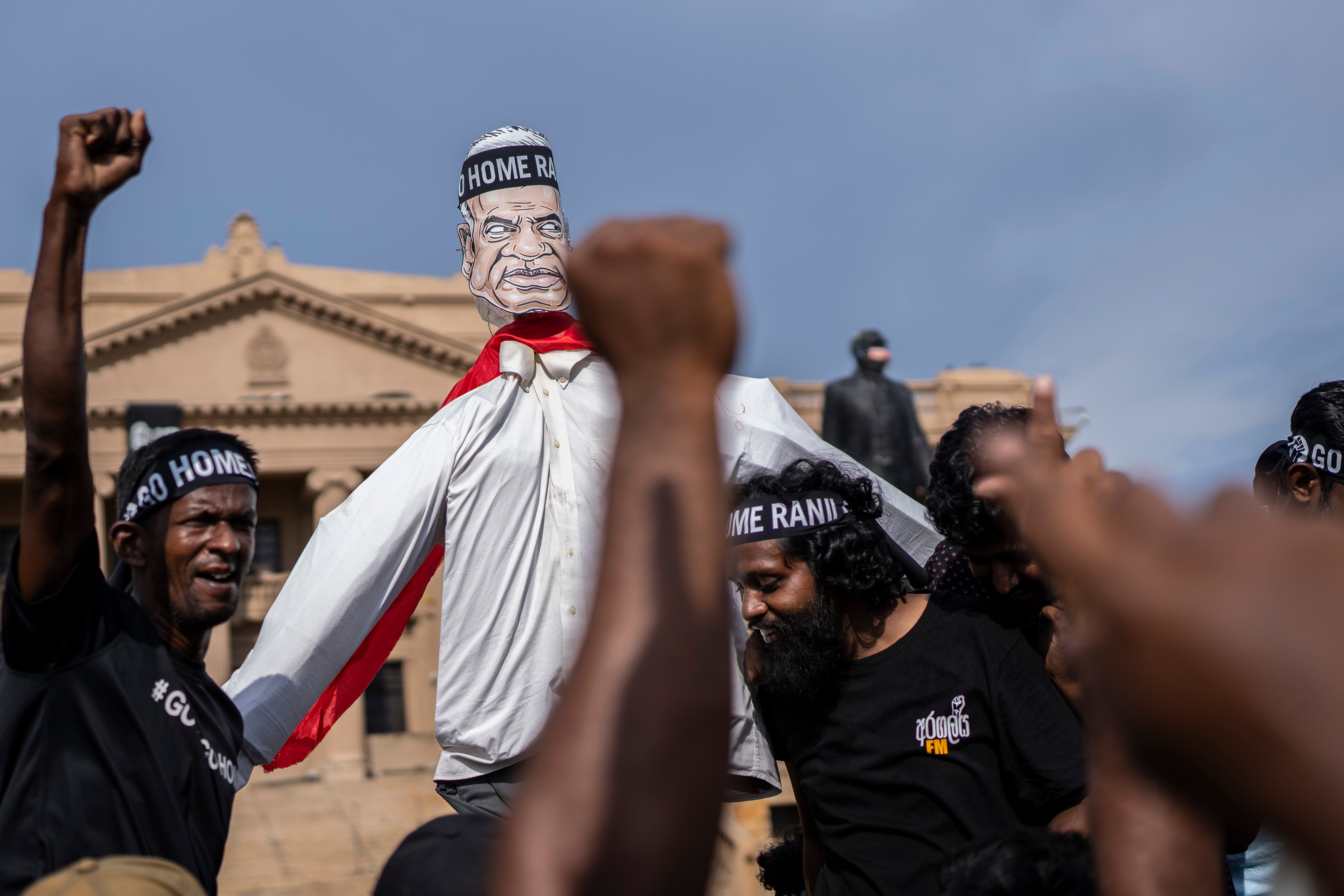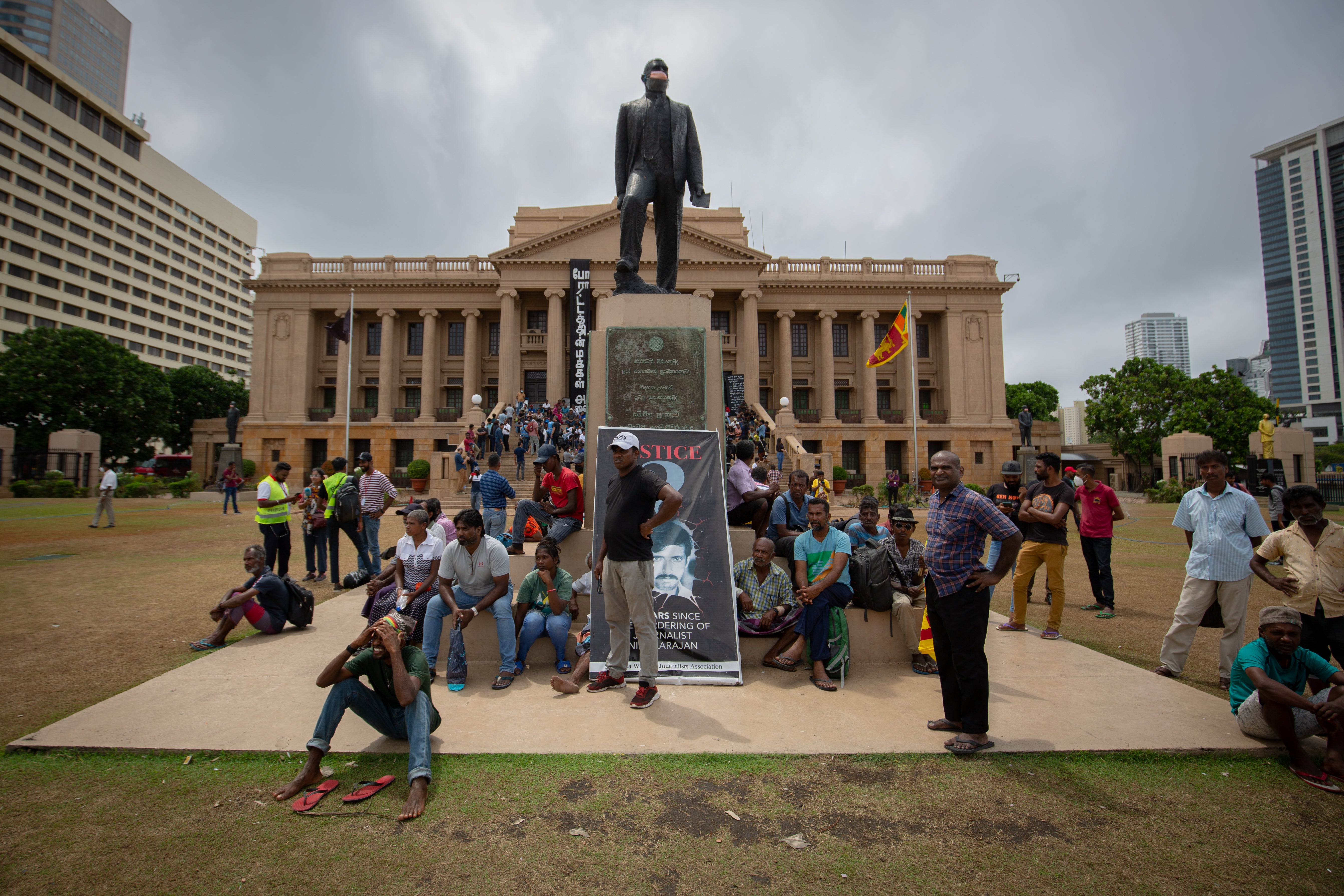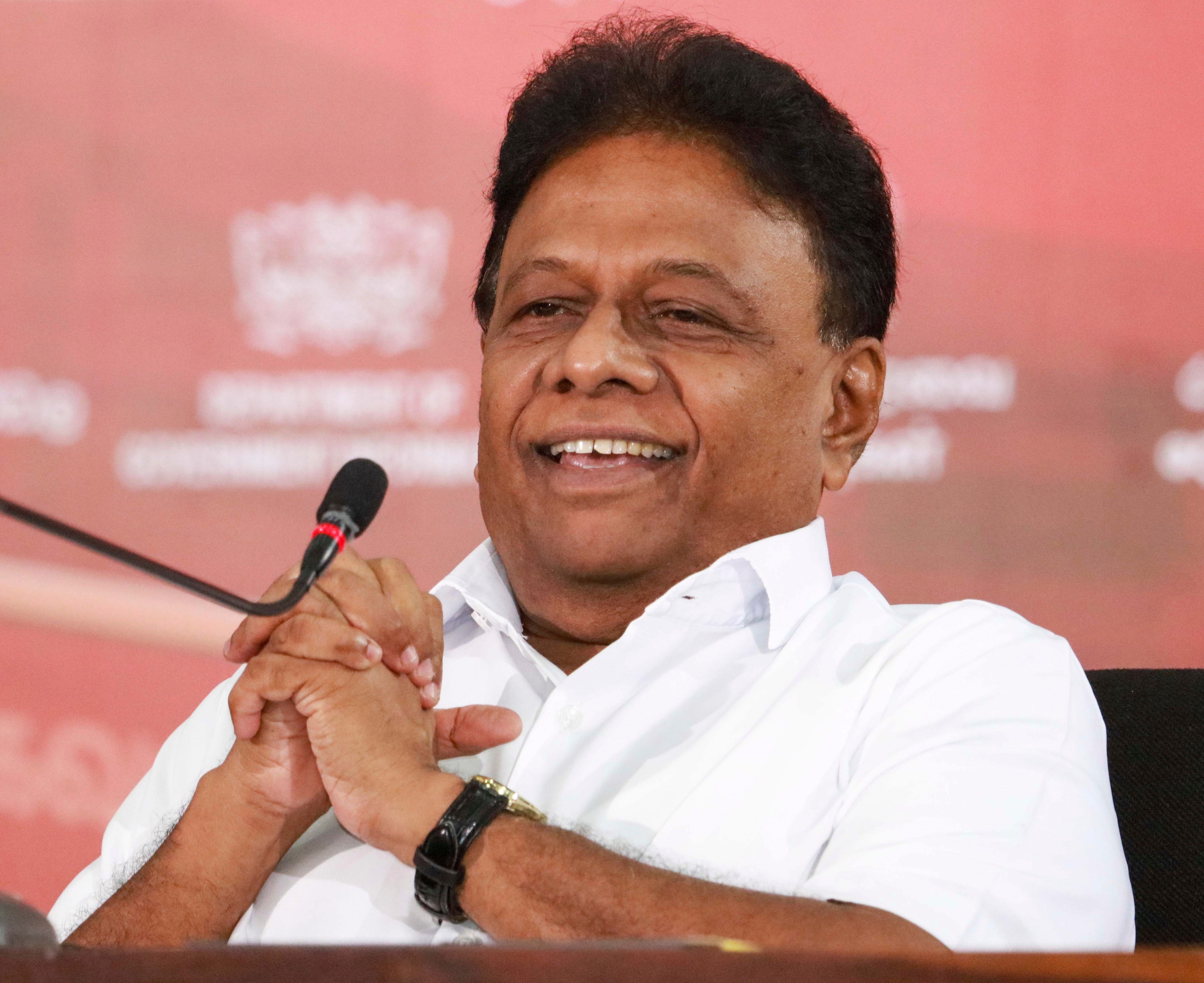Ranil Wickremesinghe elected as Sri Lanka’s next president
Wickremesinghe received 134 votes putting him ahead of Dullas Alahapperuma, his main rival
Your support helps us to tell the story
From reproductive rights to climate change to Big Tech, The Independent is on the ground when the story is developing. Whether it's investigating the financials of Elon Musk's pro-Trump PAC or producing our latest documentary, 'The A Word', which shines a light on the American women fighting for reproductive rights, we know how important it is to parse out the facts from the messaging.
At such a critical moment in US history, we need reporters on the ground. Your donation allows us to keep sending journalists to speak to both sides of the story.
The Independent is trusted by Americans across the entire political spectrum. And unlike many other quality news outlets, we choose not to lock Americans out of our reporting and analysis with paywalls. We believe quality journalism should be available to everyone, paid for by those who can afford it.
Your support makes all the difference.Ranil Wickremesinghe has been elected Sri Lanka’s new president after a parliament vote count on Wednesday.
Mr Wickremesinghe has been serving as the caretaker president ever since former president Gotabaya Rajapaksa fled the country and emailed his resignation days later.
He secured 134 votes in the 225-member house, while his main rival, ruling party lawmaker Dullas Alahapperuma, got 82.
Another candidate, Marxist leader Anura Dissanayake received just three votes, reported the Associated Press.
“I thank parliament for this honour,” said Mr Wickremesinghe, who has served as prime minister for a record six times. “Our country is facing massive challenges and we have to work on a new strategy to fulfill the aspirations of the people,” he said after winning the vote in parliament.
Speaking with Reuters, Sri Lanka Podujana Peramuna general secretary Sagara Kariyawasam said “This is [an] economic crisis and not a political crisis.”

“We feel that Ranil Wickremesinghe is the only person with the experience, the know-how and the capacity to provide solutions to the economic crisis.”
As president, he is to complete Rajapaksa’s term which was scheduled to end in 2024.
The vote could lead to political turmoil in the south Asian island state reeling from its worst economic crisis in memory and Mr Wickremesinghe, 73, has faced anger from protesters who want him gone because of his handling of the economy.
The response has been muted so far.
“We’re shocked. He’s a person handling things in a very cunning way,” protester Damitha Abeyrathne told Reuters of Mr Wickremesinghe. “He will start controlling us in a different way. As protesters, we will start our struggle again.”
Mr Wickremesinghe, appointed as prime minister in May, is a seasoned politician with experience in diplomatic and international affairs.
Brought in by his predecessor, he has been leading crucial talks on an economic bailout package with the International Monetary Fund.

His reputation as a shrewd operator earned him the nickname “the fox”, with several counting it in his favour as they rely on him to help pull Sri Lanka out of the crisis.
Also a lawyer, Mr Wickremesinghe unsuccessfully ran for the presidential post twice earlier. His victory in parliament on Wednesday came after he secured the backing of many within the main party, Sri Lanka Podujana Peramuna (SLPP), that is dominated by the Rajapaksa family.
Thousands of demonstrators took to the streets earlier this month to vent their fury at soaring inflation, shortages of fuel and other vital goods, regular power blackouts and what they see as corruption among the ruling elite.
While the focus of their ire was Mr Rajapaksa, a member of the country’s most powerful political dynasty before the crisis who fled the country for Singapore, they also demanded that Mr Wickremesinghe stand down - something he refused to do. He has been blamed by critics for stalling probes against the Rajapaksa family, including for accusations of human rights violations and corruption. Mr Wickremesinghe denies the allegations.
His refusal to relinquish the leadership of his party had led to the formation of the Samagi Jana Balawegaya (SJB) outfit, whose leader Sajith Premadasa was slated to compete for the top post alongside him.

But Mr Premadasa dropped out of the race on Tuesday as parliamentarians met to finalise nominees. He put his weight behind Mr Alahapperuma. It was however, not enough to sway the elected representatives against the caretaker president.
Despite being born into a prominent family of politicians and businessmen with large interests in the media, Mr Wickremesinghe has little support beyond wealthy urban voters.
Though this has not stopped him from repeatedly finding his way back to the premiership, on 9 July he announced he was willing to step down as prime minister after protesters swarmed into his personal residence.
Having been made the country’s youngest cabinet minister at the age of 29, the newly elected president is an economic liberal with experience in dealing with the IMF and has developed a relationship with the neighbouring state of India and China.
The seasoned politician feels “politics is more than chess”.
“It’s teamwork like cricket,” he said in a television interview in 2014. “It is how you must have the stamina for a marathon. It’s a hard game like rugger and it is a bloodsport like boxing.”
Additional reporting from the wires

Join our commenting forum
Join thought-provoking conversations, follow other Independent readers and see their replies
Comments